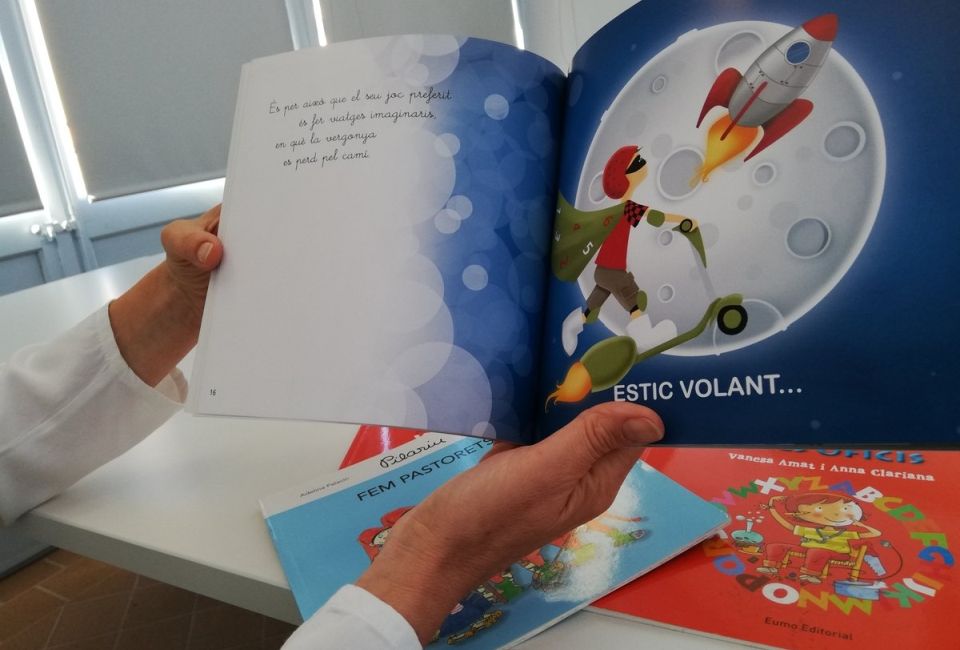
The use of children's literature to learn English in classrooms will be the focus of an international conference at the UVic-UCC
Storytelling is a constant feature in preprimary and primary education, where stories are used on a daily basis as a resource to achieve many goals, including learning the English language. It is precisely this use of children's literature when acquiring this additional language that will be the topic of the first Storytelling revisited international congress, organised by the UVic-UCC in the Segimon Serrallonga Hall on the Vic campus on 28 November. The event is being jointly organised by the research groups GETLIHC (Gender Studies: Translation, Literature, History and Communication), GRELL (Education, Language and Literature) and TEXLICO (Contemporary Literary Texts: Study, Publication and Translation).
"We are starting with a single objective, which is the learning of English based on the use of children's literature, but we have many very varied resources at our disposal, and the debate that we can engage in around them is very wide-ranging," says Mireia Canals, a member of the GETLIHC group. For example, teachers can use cinema, music and songs, images and illustrated books, "and each these resources can be examined from many perspectives: what do we use, when, how and why?" Canals believes that the learning environment, which varies according to the age of the children, is also very different, "but so is the approach to English in the classroom." Other factors, such as the gender perspective, must also be taken into account.
That is why the congress will have a highly interdisciplinary perspective, and will bring together teachers, lecturers, researchers and students from different knowledge areas, including psychology, pedagogy, children's literature, gender, specific didactics, intercultural studies, transmedia and multiple intelligences. "We want to exchange university knowledge, and that's why we are creating a convergence of language, didactics and gender with literature as the central theme," says Canals, who believes that "this plural perspective can be expanded even further in future events."
The speakers include the doctor in Pedagogy Rossella Certini, from the University of Florence, who will be talking about autobiographies and literature for children based on the examples of Rudyard Kipling and Mark Twain; Valéria Árva, from the Eötvös Loránd University in Budapest, whose lecture will focus on ways to use illustrated books in bilingual nursery schools; Éva Benkő, also from the Eötvös Loránd University in Budapest, an expert at CLIL and storytelling, will be discussing science through stories, and Chiara Lepri, an expert in illustration in children's literature at the University of Rome, will be talking about identity and gender in illustrated books. The congress will also include several blocks of brief communications, and a closing ceremony attended by the UVic-UCC's Vice-rector of Research and Knowledge Transfer, Jordi Villà.